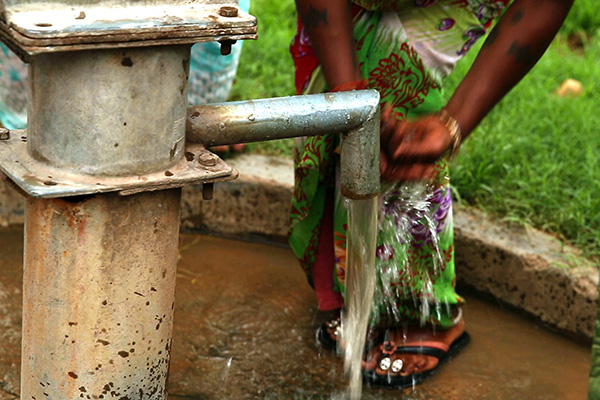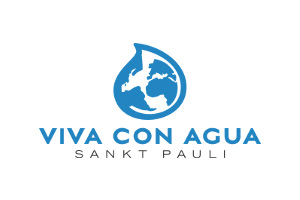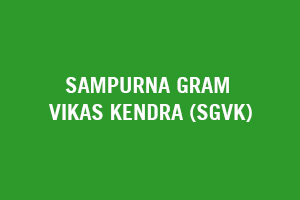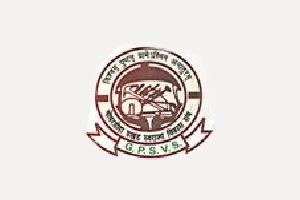WASH and Water Security
Water Sanitation and Hygiene (WASH)
Welthungerhilfe’s Water Sanitation and Hygiene (WASH) initiatives have been implemented in the sates of Bihar, Jharkhand and Madhya Pradesh (MP) in India. 
Welthungerhilfe India has been actively working with “WASH Initiative in improving water sanitation and hygiene in selected states of India “since 2011. We focus on developing porotypes to address WASH issues and water management problems at the local level, while strategically influencing policies at a higher level. The initiatives have been supported by the European Union, BMZ and corporate donor Viva Con Agua of Germany.
WASH interventions in India has adopted the rights-based approach for improving water and sanitation conditions through mass mobilization and targets mainly rural and peri urban population. A meaningful dialogue has been initiated with the national and local government to provide more space for bottom-up planning which is done through micro planning at village level and to connect it with Panchayat level in India through a campaign called Jal Jan Jodo Abhiyan (People’s water alliance). The knowledge and experience gathered through WASH interventions are systematically incorporated to address malnutrition in holistic way through LANN+ (Linking Agriculture natural resource management towards nutrition security) approach.
WHH follows two-pronged strategy to capacitate community leaders (Jal Sahelis and Jal Mitras) for their institutional development through raising awareness on water security, sanitation and personal hygiene as well as provision of various small drinking water supply schemes for safe and potable water to the targeted population. The interventions also focus on reviving traditional rainwater harvesting structures through community mobilisation.
Improving drinking water facilities at household level by adopting low cost filtering techniques and at community level by creating a collective knowledge on sources of drinking water suitable or unsuitable for drinking purposes and demonstration of point source protection such as spring protection, raised platform for Tube wells etc. It emphasises on changing community’s attitude towards storing and utilizing drinking water and protecting the drinking water sources.
Community Led Total Sanitation (CLTS) and School Led Total Sanitation (SLTS) techniques have been adopted to motivate people on taking actions to free their areas from open defecation. Several trainings, campaigns, wall writing, street plays, video shows have been designed to create mass awareness in the villages to address sanitation and personnel hygiene specially the hand wash practices.
WHH implements the WASH activities in collaboration with the Ministry of Water Resources, River and Ganga Rejuvenation, Ministry of Agriculture, Ministry of Health and Ministry of Education.
Key Achievements:
Some remarkable milestones, achieved through the implementation of WASH project, include:
- increased availability of toilets
- improved access to drinking water
- better community awareness and behaviour change on hygiene and sanitation
- greater accessibility to government schemes related to water and sanitation
- strengthened community based institutions (WASH Committee, SHG)








